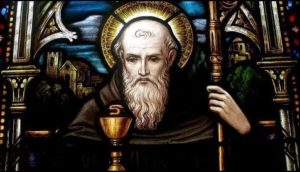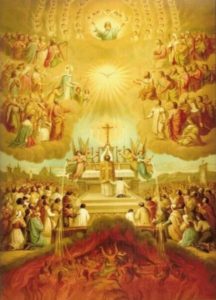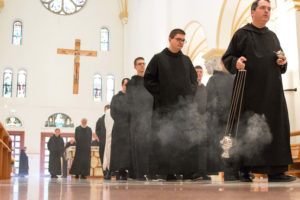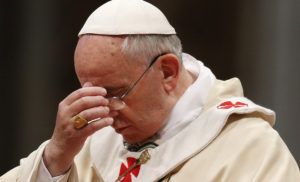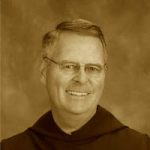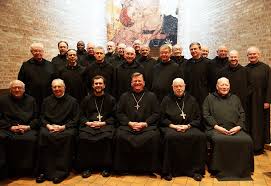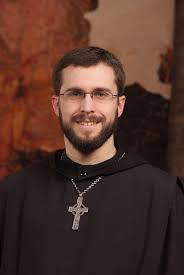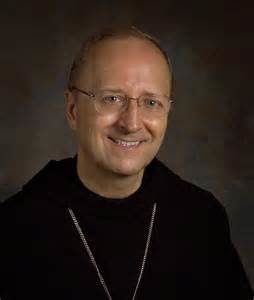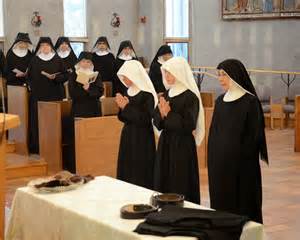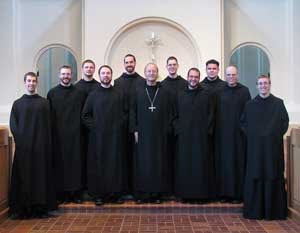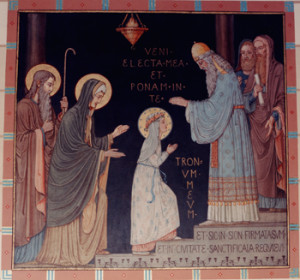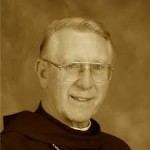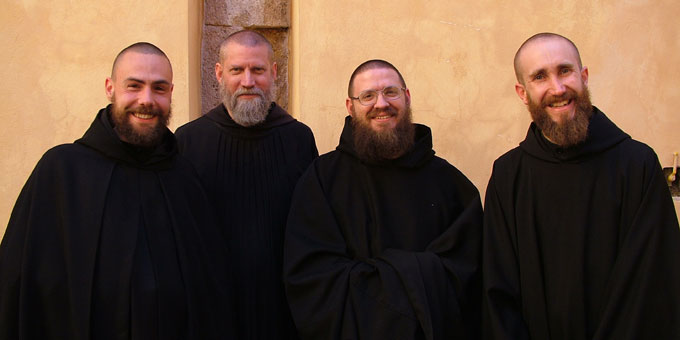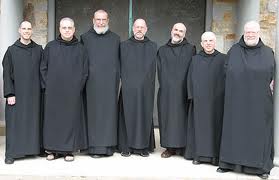 The Lord Jesus Christ is the ultimate source of our stability and the foundation of our faith. He it is who provides the courage, the stamina, the example, the guidance, the witness and the perseverance to follow Him safely along the path of life to His everlasting kingdom and to join Him in heaven for all eternity.
The Lord Jesus Christ is the ultimate source of our stability and the foundation of our faith. He it is who provides the courage, the stamina, the example, the guidance, the witness and the perseverance to follow Him safely along the path of life to His everlasting kingdom and to join Him in heaven for all eternity.
Since Jesus is our rock of safety and our heavenly goal, we call upon Him daily for His divine guidance and protection. “Be my rock of refuge, a stronghold to give me safety. You are my rock and my fortress; for your namesake you will lead me and guide me” (Ps 30:3-5; c.f. Psalm 70:3).
A lifetime of perseverance in the way of the Lord brings us an abundance of graces. Every time we receive an answer to a prayer, a link of understanding for some small trial, a signpost of peace and approval or any favor for that matter, we magnify it still more by giving thanks to God our Savior.
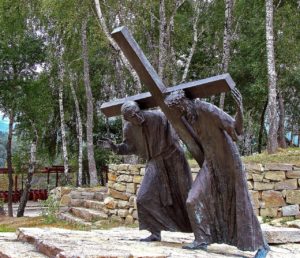 Every time we offer thanks even for a small or a large and difficult task, we multiply the graces significantly. God will never be outdone in generosity! Our life can be filled with trials and difficulties, and these if done with a willing spirit, we advance in the spiritual life. God always gives what is good for our eternal salvation provided we follow His promptings.
Every time we offer thanks even for a small or a large and difficult task, we multiply the graces significantly. God will never be outdone in generosity! Our life can be filled with trials and difficulties, and these if done with a willing spirit, we advance in the spiritual life. God always gives what is good for our eternal salvation provided we follow His promptings.
The gift of perseverance is a necessary virtue. For Scripture has it: “Anyone who perseveres to the end will be saved (Matt 10:22), and again, Be brave of heart and rely on the Lord (Ps 26[27]:14).”
We will find a multitude of examples and grace-filled sources of encouragement if we prayerfully read the Scriptures, the Apostles, the Fathers of the Church (early or modern), and the Lives of the Saints, especially if we follow their example and earnestly ask for their peace, protection and encouragement.
 Stability has as much as to do with the mind, the heart and the soul as it does to being stable in one place, organized, and clear of all clutter. Our quiet time spent in prayer on a regular basis brings peace, quiet and a more willing receptiveness to the will of the Lord.
Stability has as much as to do with the mind, the heart and the soul as it does to being stable in one place, organized, and clear of all clutter. Our quiet time spent in prayer on a regular basis brings peace, quiet and a more willing receptiveness to the will of the Lord.
Following a regular schedule brings clarity of thought and closeness to God. We do well to daily practice discipline and pay attention to the necessary spiritual priorities in our life. These are just a few of the secular and spiritual “virtues” mentioned in this article. They are, “the tools of the spiritual craft” which our holy Father St. Benedict advises (C.f. RB 4:75). There is a connection between patience, stability and perseverance. I stand firm in doing God’s will.
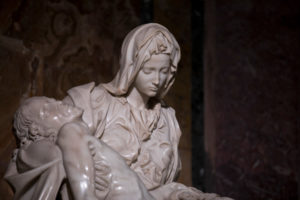 Perseverance helps us keep our eyes on the ultimate reward of joining Our Lord and Savior, Mary, Joseph and all the angels and saints in everlasting glory in heaven. We pray, “Thy Kingdom come…”, that is, in our hearts, our minds, our soul and our bodies, indeed in all of our actions.
Perseverance helps us keep our eyes on the ultimate reward of joining Our Lord and Savior, Mary, Joseph and all the angels and saints in everlasting glory in heaven. We pray, “Thy Kingdom come…”, that is, in our hearts, our minds, our soul and our bodies, indeed in all of our actions.
Let us all join in with each other as we pray for perseverance in stability and safety along with the psalmist as he places his hope and trust in God and writes: “In You O Lord I take refuge; let me never be put to shame. In your justice rescue me, and deliver me; incline your ear to me and save me. Be my rock of refuge, a stronghold to give me safety, for you are my rock, my fortress. O my God, rescue me from the hand of the wicked, from the grasp of the criminal and the violent. For you are my hope, O Lord; my trust, O God from my youth. On you I depend from birth; from my mother’s womb you are my strength; constant has been my hope in you. A portent am I to many, but you are my strong refuge! My mouth shall be filled with your praise, with your glory day by day”.
Amen! (Ps. 70:1-8 C.f. Ps. 30:1-6)
Br. Daniel is a Benedictine monk at Prince of Peace Abbey in Oceanside, California.
